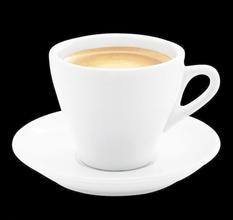Introduction of boutique coffee in Matagalpa in Central America and Nicaragua
In many countries coffee production is severely affected for political reasons. The coffee industry in Nicaragua is no exception. The revolution of 1979 forced coffee growers to flee to Miami. A period of uncertainty ensued as the government considered whether to reallocate land, including many plantations, resulting in a shortage of coffee supplies and a decline in production, from more than 1 million bags in the early 1970s to less than 600,000 bags in 1990. Now the government has liberalized the coffee industry and private owners have taken control of the market. The best coffees are produced in Sinotka, Matagalpa, and Nueva Segovia. They are pleasant with moderate acidity and aromatic taste.
Nicaragua is now one of the poorest countries in Central America. Because of its poor economic base, the coffee industry is still in a relatively backward state, while coffee farmers are in an extremely poor state. Fortunately, Nicaragua's coffee has received some foreign aid funds to improve the quality of its coffee. Nicaragua's Madagelba, Chinodega, Segovia region of coffee produced by coffee lovers respected the world. In particular, the coffee produced in the Madagalba region tastes like Kenya AA Nicaragua is located in central Central America, bordering the Pacific Ocean to the west and the Caribbean Sea to the east. North central highlands, coastal plains to the east, is part of the Central American volcanic belt. The eastern plain is hot and rainy, and has a tropical marine climate. Suitable climate provides a good growing environment for coffee cultivation.
High quality Nicaragua coffee, grown in the north and centre of the country. Coffee is Nicaragua's pillar industry, producing nearly a hundred thousand tons of coffee beans every year. Many people who have tasted Nicaragua coffee usually think that it is no different from Salvadoran coffee or Honduran coffee. It is rich in aroma, smooth and delicate, slightly bitter finish, like wine in the subtle flavor

Important Notice :
前街咖啡 FrontStreet Coffee has moved to new addredd:
FrontStreet Coffee Address: 315,Donghua East Road,GuangZhou
Tel:020 38364473
- Prev

Papua New Guinea Coffee beans taste and flavor introduction boutique coffee
If you taste Papua New Guinea coffee beans with Guatemala Antigua coffee, it will have a different taste. As we all know, Papua New Guinea coffee has the characteristics of fruit flavor and herbal aroma, while Guatemala Antigua coffee has a slightly spicy and cocoa flavor, which is mixed with a mixture of both. The tip of the tongue has both fragrant fruit and cocoa flavor.
- Next

Clean and meticulous Cuban crystal coffee introduces boutique coffee beans
In Cuba, the vast majority of coffee beans are picked by hand. Coffee beans are picked about every half a month during the ripening period. During or after picking, coffee beans are classified and those immature and bad beans are removed to ensure the quality of the coffee. Cubans usually deal with coffee beans in two ways: sun exposure and water washing. Sunbathing is the simplest and most.
Related
- Detailed explanation of Jadeite planting Land in Panamanian Jadeite Manor introduction to the grading system of Jadeite competitive bidding, Red bid, Green bid and Rose Summer
- Story of Coffee planting in Brenka region of Costa Rica Stonehenge Manor anaerobic heavy honey treatment of flavor mouth
- What's on the barrel of Blue Mountain Coffee beans?
- Can American coffee also pull flowers? How to use hot American style to pull out a good-looking pattern?
- Can you make a cold extract with coffee beans? What is the right proportion for cold-extracted coffee formula?
- Indonesian PWN Gold Mandrine Coffee Origin Features Flavor How to Chong? Mandolin coffee is American.
- A brief introduction to the flavor characteristics of Brazilian yellow bourbon coffee beans
- What is the effect of different water quality on the flavor of cold-extracted coffee? What kind of water is best for brewing coffee?
- Why do you think of Rose Summer whenever you mention Panamanian coffee?
- Introduction to the characteristics of authentic blue mountain coffee bean producing areas? What is the CIB Coffee Authority in Jamaica?

